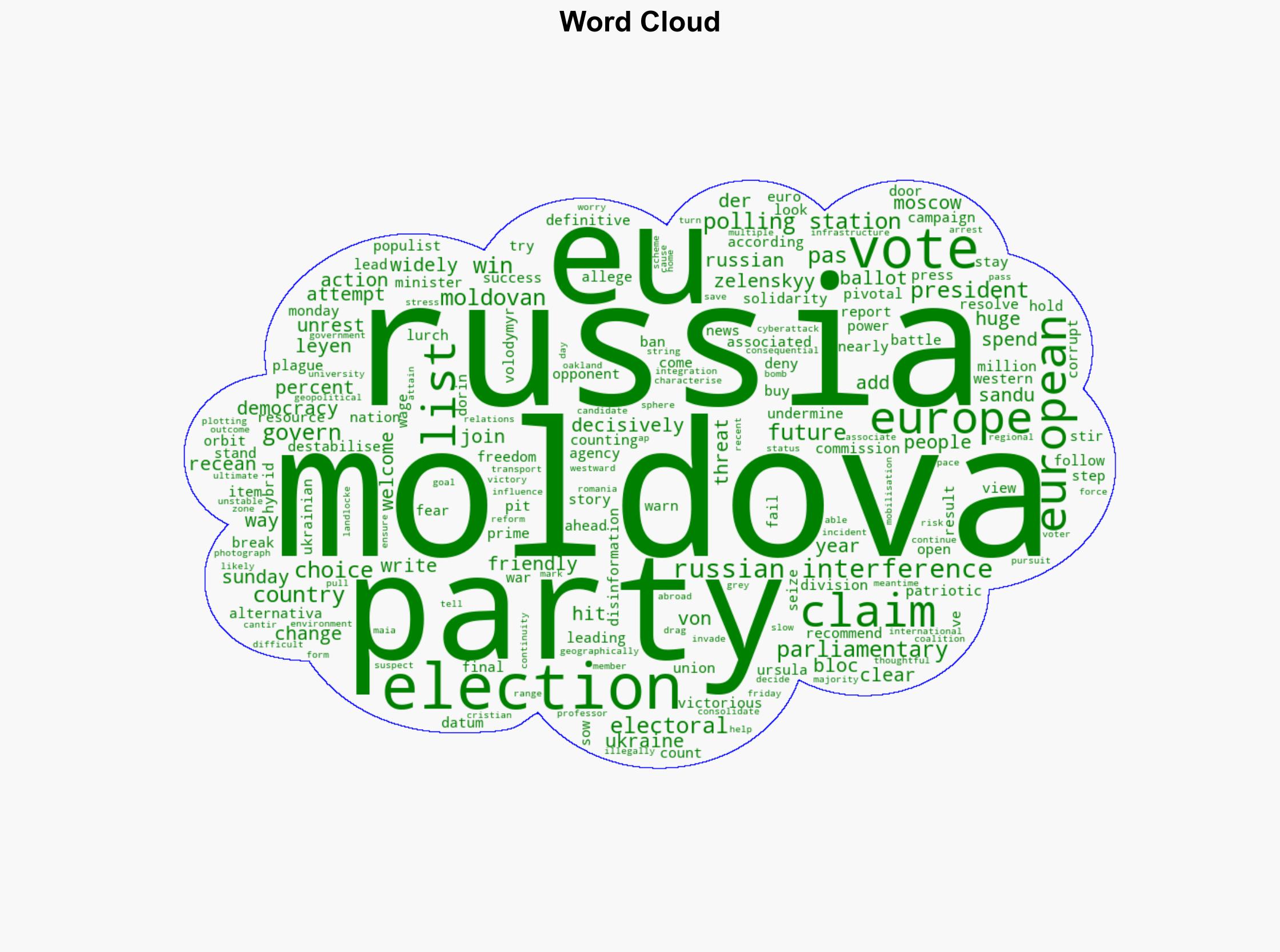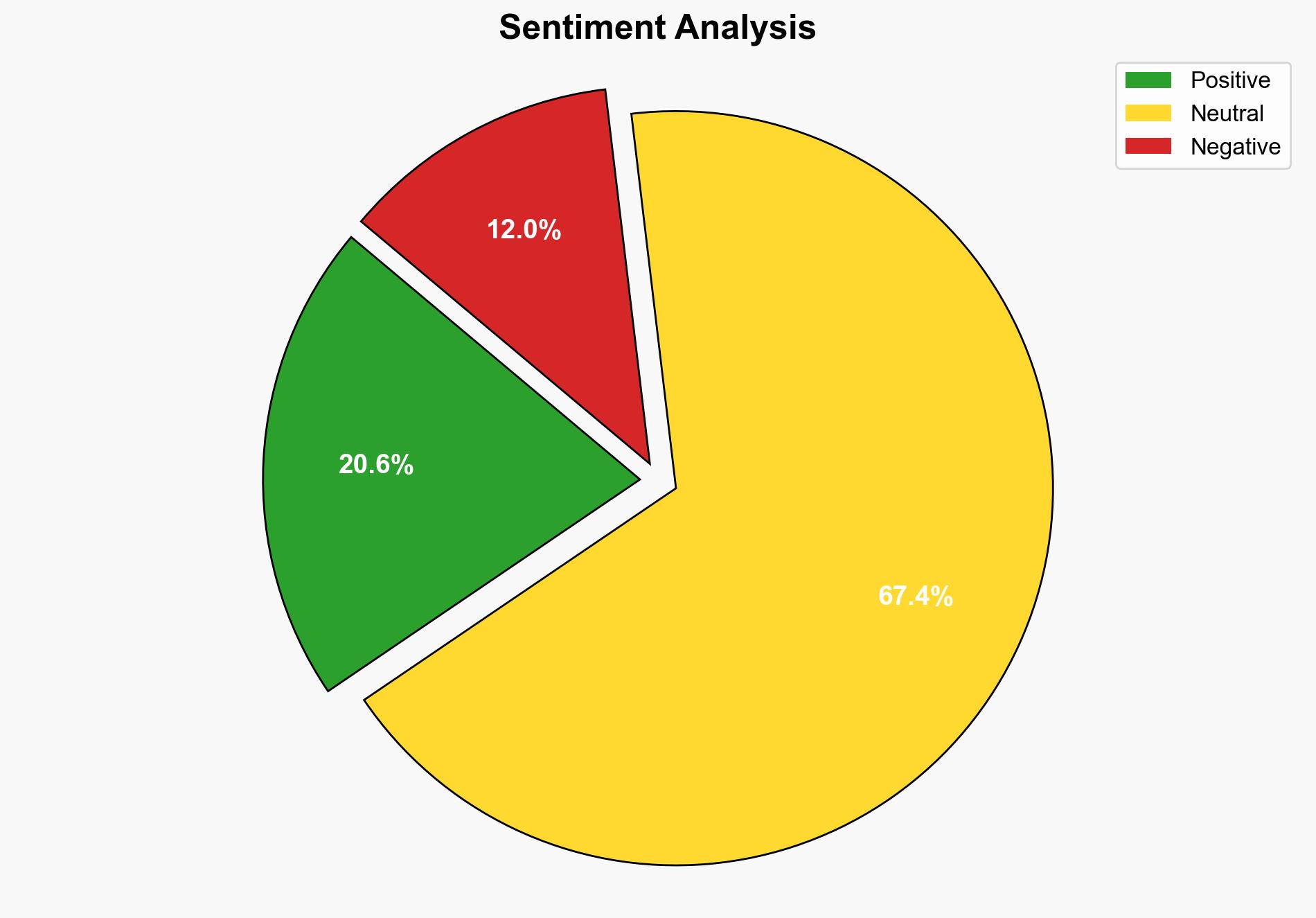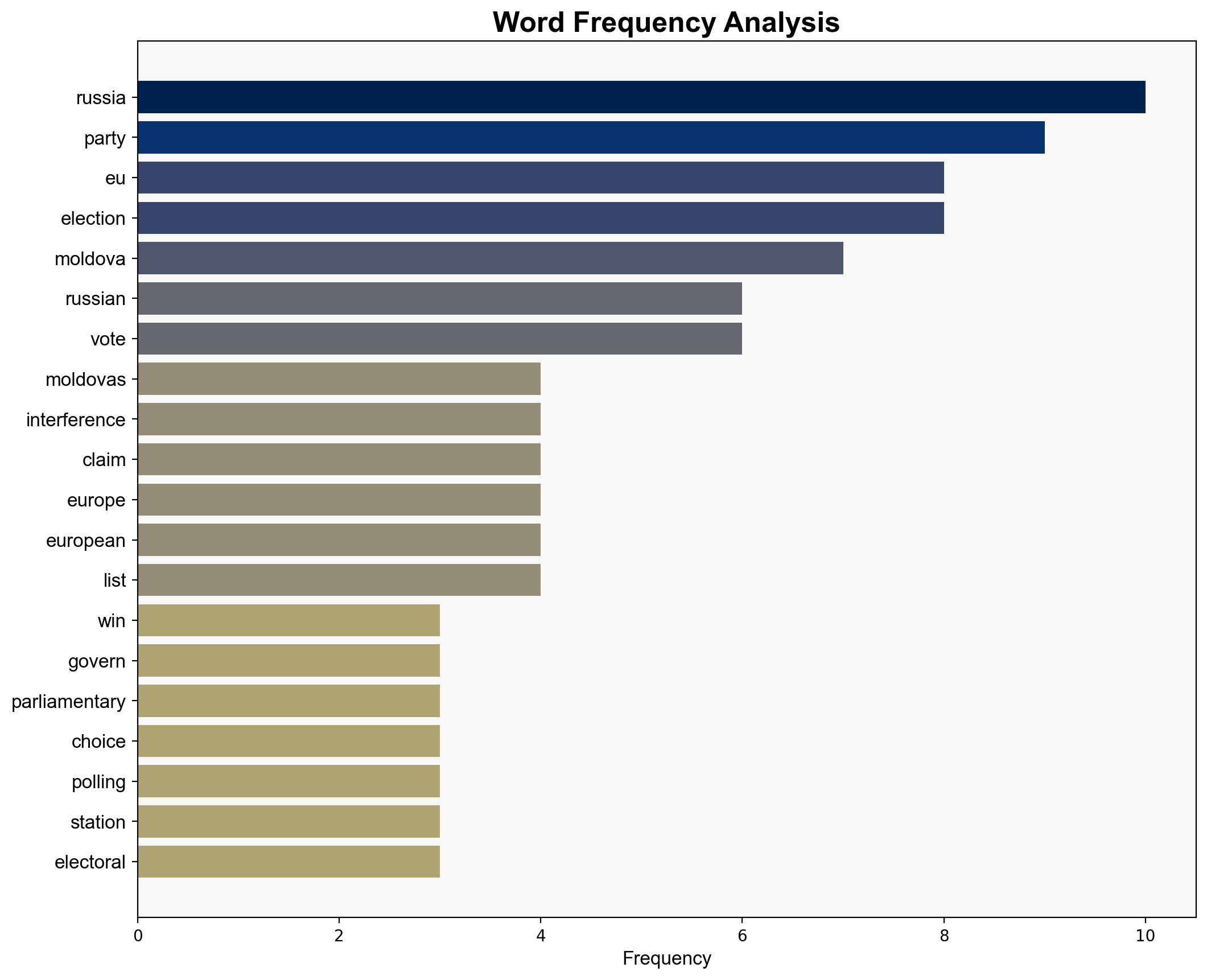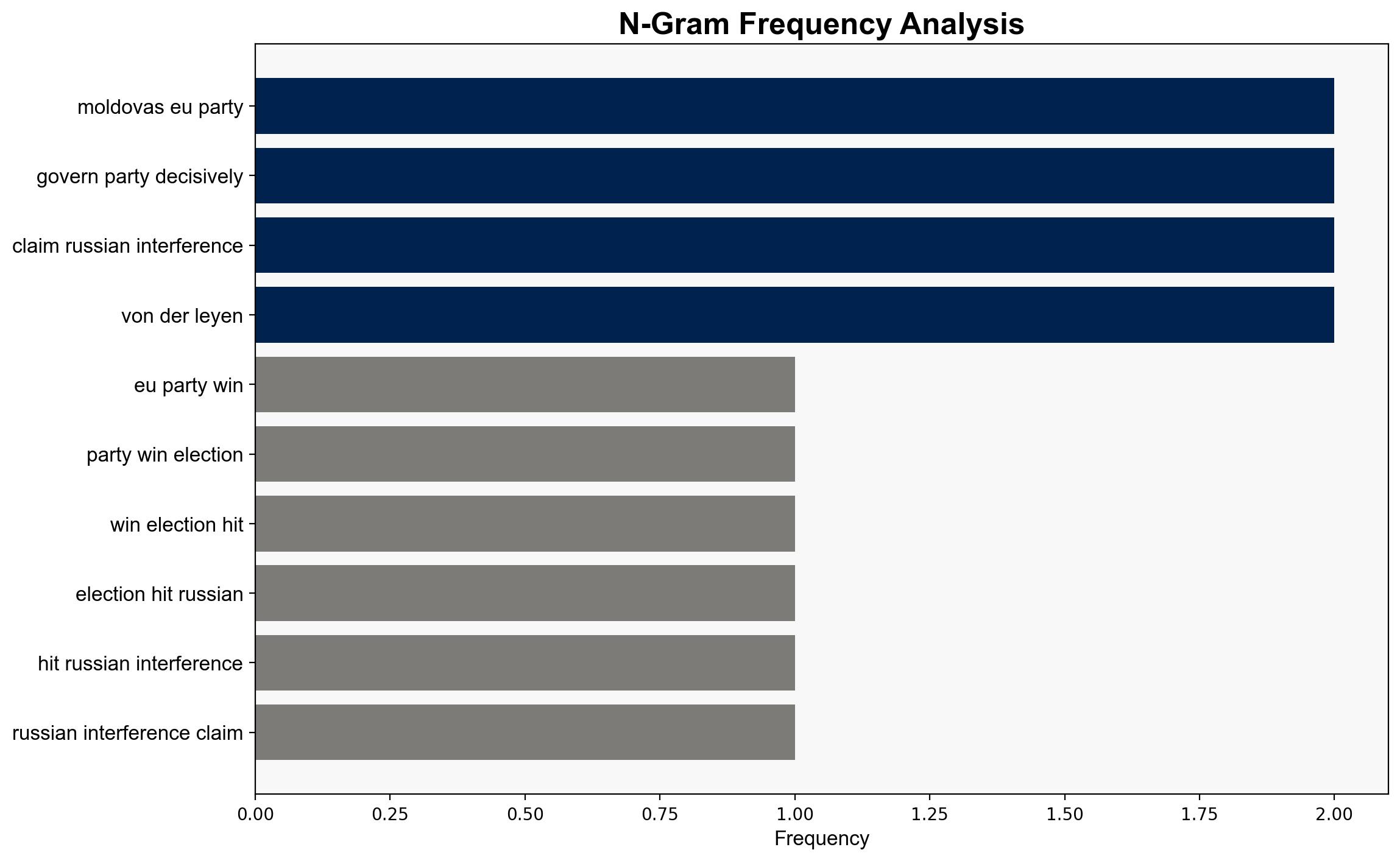Moldovas pro-EU party wins election hit by Russian interference claims – Al Jazeera English
Published on: 2025-09-29
Intelligence Report: Moldovas pro-EU party wins election hit by Russian interference claims – Al Jazeera English
1. BLUF (Bottom Line Up Front)
The most supported hypothesis is that Moldova’s pro-EU party’s election victory was legitimate but marred by credible claims of Russian interference. This assessment is based on the convergence of multiple reports of interference tactics and geopolitical patterns. Confidence level is moderate due to the complexity of verifying interference claims. Recommended action includes bolstering Moldova’s cybersecurity and electoral integrity measures while engaging in diplomatic efforts to counter Russian influence.
2. Competing Hypotheses
1. **Hypothesis A**: Moldova’s pro-EU party won the election fairly, with Russian interference attempts failing to significantly impact the outcome. This is supported by the decisive victory margin and international recognition of the results.
2. **Hypothesis B**: Russian interference significantly influenced the election process, potentially affecting the legitimacy of the results. This is supported by reports of disinformation campaigns, cyberattacks, and other destabilizing activities.
Using the Analysis of Competing Hypotheses (ACH) 2.0, Hypothesis A is better supported due to the lack of concrete evidence showing a direct impact on the election outcome, despite the presence of interference attempts.
3. Key Assumptions and Red Flags
– **Assumptions**: It is assumed that international observers and local reports accurately reflect the election’s integrity. Another assumption is that Russian interference was primarily aimed at destabilization rather than altering results.
– **Red Flags**: The absence of detailed evidence linking interference to specific electoral outcomes is a red flag. The reliance on official statements without independent verification could introduce bias.
– **Blind Spots**: Potential underestimation of covert operations or influence tactics not publicly disclosed.
4. Implications and Strategic Risks
– **Geopolitical**: Moldova’s alignment with the EU may provoke further Russian attempts to destabilize the region, increasing regional tensions.
– **Cybersecurity**: The reported cyberattacks highlight vulnerabilities in Moldova’s digital infrastructure, necessitating enhanced defenses.
– **Psychological**: Continued claims of interference could undermine public trust in democratic processes, leading to internal unrest.
– **Economic**: Potential sanctions or economic pressures from Russia could impact Moldova’s economic stability.
5. Recommendations and Outlook
- Enhance Moldova’s cybersecurity measures to protect against future interference.
- Engage in diplomatic efforts with EU allies to support Moldova’s democratic processes.
- Scenario Projections:
- **Best Case**: Strengthened EU-Moldova relations lead to increased stability and economic growth.
- **Worst Case**: Escalation of Russian interference leads to regional instability and economic sanctions.
- **Most Likely**: Continued low-level interference with gradual integration into EU structures.
6. Key Individuals and Entities
– Maia Sandu
– Dorin Recean
– Ursula von der Leyen
– Volodymyr Zelenskyy
7. Thematic Tags
national security threats, cybersecurity, counter-terrorism, regional focus




